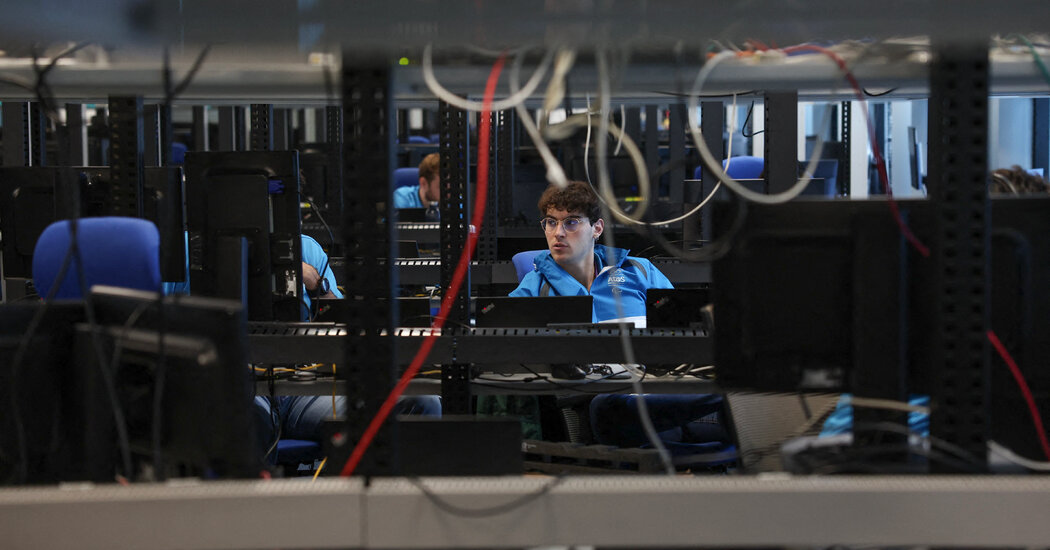“We will be attacked,” the official responsible for fending off cyberthreats said. To prepare, organizers have been hosting war games and paying “bug bounties” to hackers.
In his office on one of the upper floors of the headquarters of the Paris Olympic organizing committee, Franz Regul has no doubt what is coming.
“We will be attacked,” said Mr. Regul, who leads the team responsible for warding off cyberthreats against this year’s Summer Games in Paris.
Companies and governments around the world now all have teams like Mr. Regul’s that operate in spartan rooms equipped with banks of computer servers and screens with indicator lights that warn of incoming hacking attacks. In the Paris operations center, there is even a red light to alert the staff to the most severe danger.
So far, Mr. Regul said, there have been no serious disruptions. But as the months until the Olympics tick down to weeks and then days and hours, he knows the number of hacking attempts and the level of risk will rise exponentially. Unlike companies and governments, though, who plan for the possibility of an attack, Mr. Regul said he knew exactly when to expect the worst.
“Not many organizations can tell you they will be attacked in July and August,” he said.
Worries over security at major events like the Olympics have usually focused on physical threats, like terrorist attacks. But as technology plays a growing role in the Games rollout, Olympic organizers increasingly view cyberattacks as a more constant danger.
